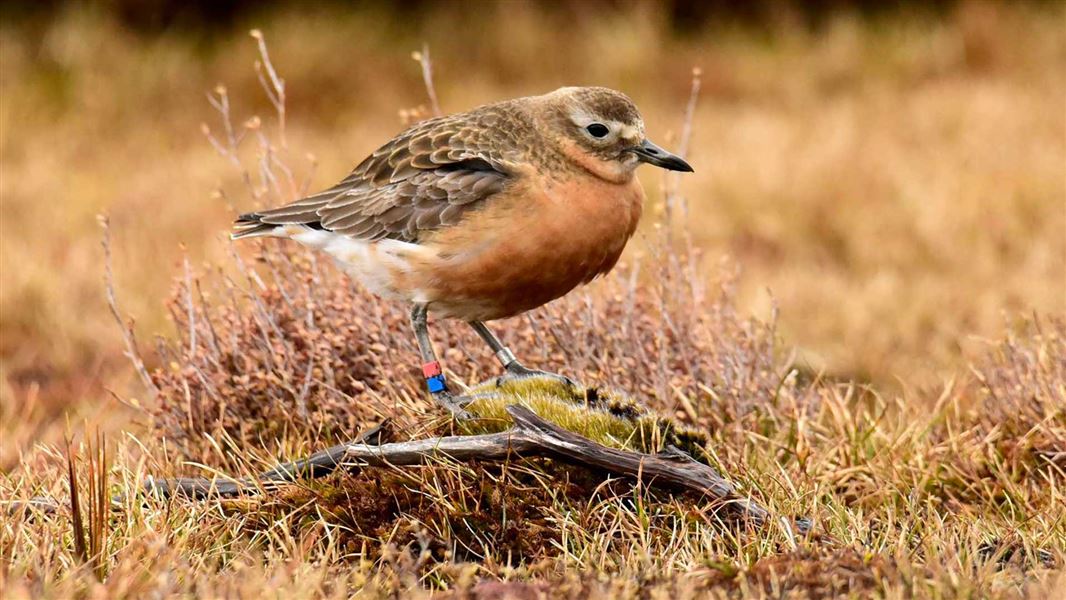Archived content: This media release was accurate on the date of publication.
Date: 07 November 2024
DOC Senior Biodiversity Ranger Kev Carter says the new chicks are being guarded by both parents.
“It takes 30 days for pukunui eggs to hatch. The female sits on the nest by day and the male at night. Once chicks are hatched both parents feed them throughout their fledgling stage for about six weeks, until they can fly.
“Sadly, the lifespan of pukunui is often cut short as they’re killed by predators. The males are at particular risk as they sit on nests at night when feral cats are most active.”
There are just 101 pukunui left in the world and they only breed on the mountain tops of Rakiura, from September until January, and feed on some estuaries/beaches in Southland and on Rakiura during the winter.
“The past five years have seen a worrying decline in pukunui numbers from 170 to the current 101,” says Kev.
“Rakiura is the final refuge of pukunui but they are under threat from feral cats, rats, possums, white tailed deer, spur wing plover, black backed gulls and Australasian harriers.
“Seven nests have been found so far this season, which is a good start, and we expect to find more throughout November. We are working hard to give pukunui the best breeding season we can.”
So far, a total of 38 feral cats have been trapped across mountain breeding sites and nearby forested areas. This is a record number for the team.
Two Australasian harriers and a white-tailed deer have also been removed and many rats and possums have been caught in traps.
DOC has hired two new rangers for full-time pukunui recovery work for six months, to intensify trapping efforts over the breeding season.
“We are throwing everything at this,” says Kev, “and we are so grateful to the many New Zealanders who are helping our efforts by donating to the Southern Dotterel/ Pukunui Recovery Project through the New Zealand Nature Fund.”
Around $430,000 has been raised by donations to NZ Nature Fund so far, boosting pest control efforts in remote pukunui breeding habitats and funding species monitoring and research.
“Seeing the two new pukunui chicks hatched this week has made our team very happy and along with all those who support this special species, we look forward to seeing many more.”
Background
Southern New Zealand dotterel/pukunui
Southern Dotterel / Pukunui | New Zealand Nature Fund
Pukunui/southern NZ dotterels differ from the beach nesting tūturiwhatu/northern NZ dotterels as they breed on remote mountain tops. Southern birds are heavier and darker in colouration.
Pukunui were once widespread throughout the South Island and used to breed in the Southern Alps/Kā Tiritiri o Te Moana were wiped out by pests and human hunting last century.
A total of 12 nests were found during the 2023/24 breeding season spread throughout Rakiura mountain tops as far north as Little Mt Anglem and as far south as Smith’s Lookout.
Southern New Zealand dotterel/pukunui numbers 2019-2024:
- 2019: 170
- 2020: 172
- 2021: 155
- 2022: 144
- 2023: 126
- 2024: 101
Contact
For media enquiries contact:
Email: media@doc.govt.nz
